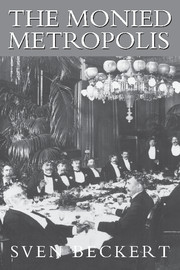Epilogue
Published online by Cambridge University Press: 05 July 2014
Summary
The broadening gap between bourgeois New Yorkers and other social groups, and the economic elite's ever-tightening relationship to the state, gave them an unprecedented hold over the American economy, society, and politics. Looking back from the 1890s to the antebellum decades, the accumulated power that came to reside in the hands of a few was indeed enormous. Single families controlled economic resources on a scale unimaginable for even the most successful merchants of the 1850s. Numerous and flamboyant social institutions knit tight networks among upper-class New Yorkers, and allowed them to display their prominence. A reformulated liberal legacy validated both large-scale capital accumulation and massive proletarianization. And the state was configured in a way that strongly privileged power emanating from civil society.
Enjoying this degree of prominence, power, and control was a departure for New York's merchants, industrialists, and bankers. In the 1850s, the economic elite had been socially, ideologically, and politically fragmented, articulating various universalist beliefs in free labor, in the absence of fundamental social conflicts, and asserting the duties of stewardship and responsibility for the community. By the 1880s, as this book has shown, upper-class New Yorkers found themselves in a tense, even antagonistic, relationship with workers and, increasingly, the lower middle class. Moreover, the ideological, social, and political projects of manufacturers on the one hand and the mercantile elite on the other hand, which had been so sharply divided in the 1850s and earlier, had merged into a common agenda, one centered on the matrix of domestic industrial development.
- Type
- Chapter
- Information
- The Monied MetropolisNew York City and the Consolidation of the American Bourgeoisie, 1850–1896, pp. 323 - 334Publisher: Cambridge University PressPrint publication year: 2001

